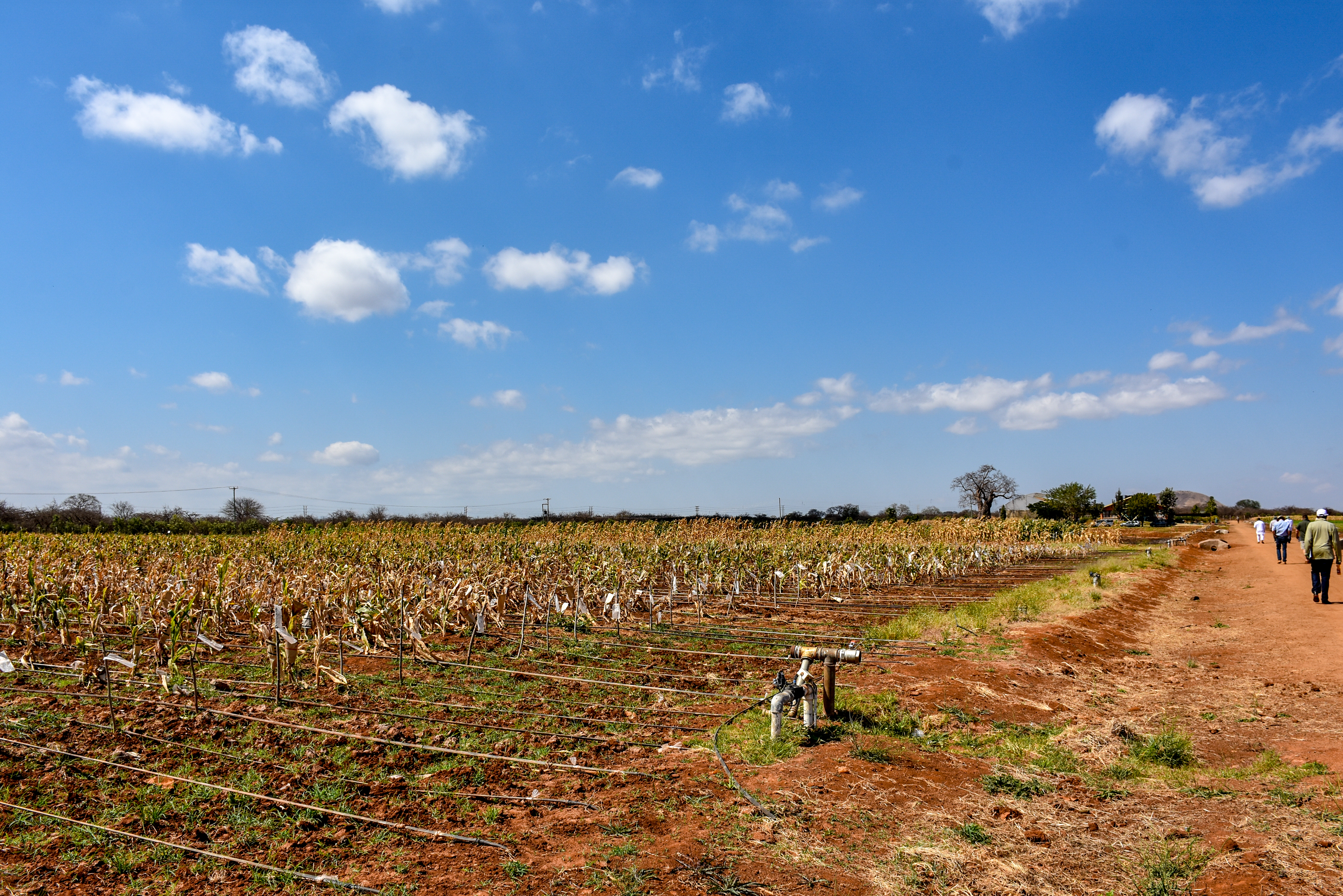Overview
Researchers
Eric Hsu
Postdoctoral associate
Edward Miguel
Oxfam Professor in Environmental and Resource Economics at the University of California, Berkeley
Anne Wacera Wambugu
Strathmore University
- Country
- Kenya
- Timeline
- 01/22/2020 - 03/01/2021
- Constraints
- Information, Input and Output Markets
- Technology Category
- Crop Quality Measure
- Sample
- 220 rural market areas

Credit: Joshua Masinde
The high prevalence of counterfeit agricultural goods in rural African markets lowers input quality, thus hindering agricultural productivity. If farmers lack the tools to detect low-quality, possibly counterfeit maize seeds, information may help them discern seed quality at the time of sale and avoid purchasing bad seeds, ultimately improving the quality of inputs in the market as farmers choose to not buy counterfeits. Researchers are conducting a randomized evaluation in Kenya to determine the effect of an information campaign to promote an SMS-based quality verification system on buyer and seller behavior as well as farmers’ productivity.
Policy Issue
Quality agricultural inputs like seeds, fertilizer, and pesticides can boost agricultural productivity, but access to high-quality inputs remains low and variable in many rural African markets. For example, a previous study in rural Kenya found that only about 77 percent of hybrid maize seeds germinate, or grow into maize crops, on average even though the Kenyan government requires a minimum of 90 percent germination for certification. Low quality inputs remain less desirable to utilize since they do not improve yields at the same magnitude as high-quality inputs.
Low quality and counterfeit products masquerade as being of acceptable or higher quality, recognizable brands but have been tampered with to reduce the potency or quality of the product. Therefore, improving farmers’ ability to detect low quality products or counterfeit products has the potential to increase adoption of higher quality inputs. Can providing farmers with information on how to detect and report low-quality products reduce the market for such products and improve agricultural productivity?
Context of Evaluation
Serious counterfeiting issues persist throughout sub-Saharan Africa. Specifically, Western Kenya, a rural region including the Busia, Bungoma, Kakamega, and Trans-Nzoia counties, is home to a combination of subsistence and pre-commercial farmers who do not have the tools to detect the quality of their agricultural inputs and are producing and selling crops that could benefit from seeds that are as productive as claimed.
Maize in particular is a staple crop crucial for promoting food security, an important ingredient leading to agricultural transformation. Local markets where there is at least one seller of maize seeds were selected to participate in the evaluation, and researchers specifically targeted maize farmers who live close to and frequent these markets to purchase their inputs.
In 2018, the Kenya Plant Health Inspectorate Service (KEPHIS) worked with seed companies to roll out a verification system which requires every packet of certified seeds in Kenya to have a sticker with a unique scratch-off code that can be scanned to confirm that the seeds are verified and not old seeds from a previous season. KEPHIS, in collaboration with the Kenyan government, recently launched/added a companion SMS-based e-verification system for farmers to verify seed quality before purchase.
Details of Intervention
In partnership with the Kenyan Ministry of Agriculture and KEPHIS, researchers conducted a randomized evaluation to determine the effect of providing information on how to detect and report low-quality maize seeds using an SMS-based system on buyer and seller behavior and agricultural outcomes.
Researchers randomly assigned 220 rural market areas with at least one maize seller into one of three groups with varying levels of information provision:
- Basic information (55 market areas): Farmers were provided information on the KEPHIS e-verification system, how to detect uncertified or old seeds, and how to verify the authenticity of seeds for purchase. A member of the research team delivered this information to farmers in the market areas in February 2020, prior to the start of the rainy season.
- Basic information + reporting information (55 market areas): Farmers were provided the same information as above as well as information on how and to whom consumers can report substandard products.
- Comparison (110 market areas): Farmers in this group received no new information on identifying the quality of seeds.
Researchers surveyed sellers of maize seeds and a random selection of farming households in the market area. The evaluation took place over one agricultural cycle, with the baseline survey and the intervention taking place before planting (in February) and endline surveys after harvest (between June and December). They collected data on farmers’ decisions to use the system, use of inputs, agricultural outcomes including yields and germination rates as well as seller behavior including sale prices chosen and overall seed quality.
Results and Policy Lessons
Project ongoing; results forthcoming.